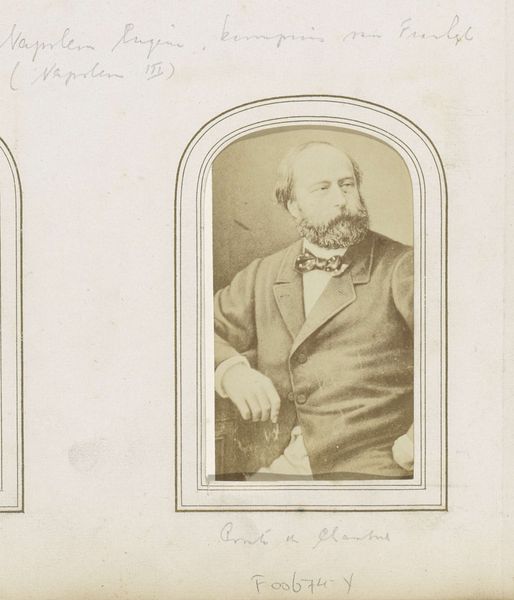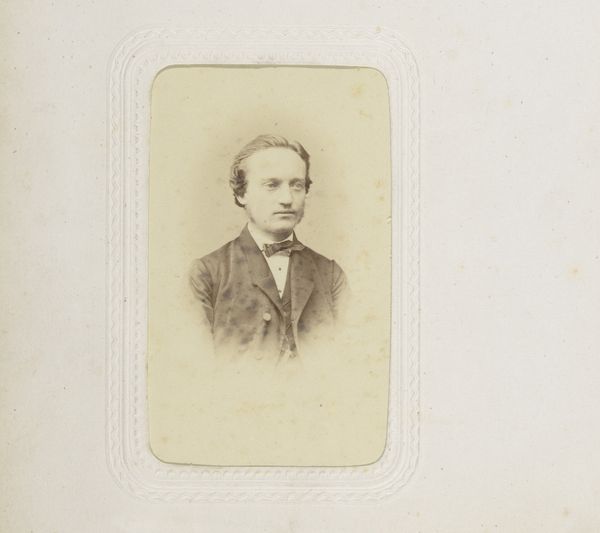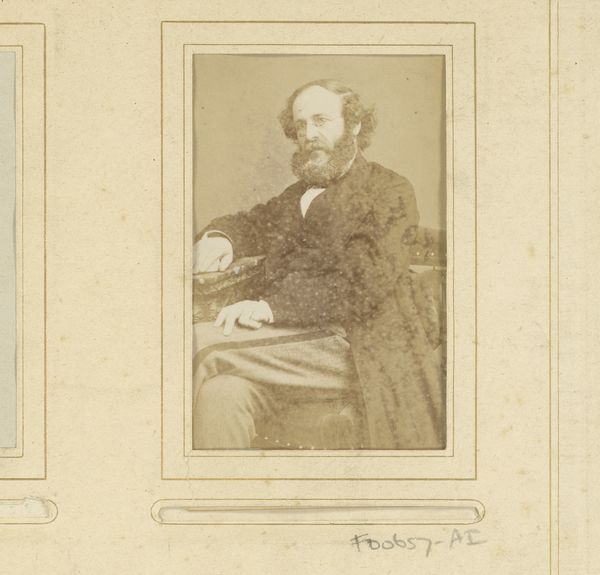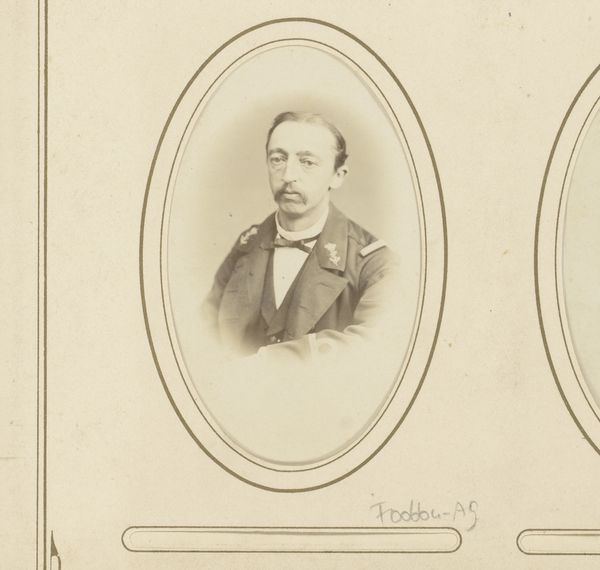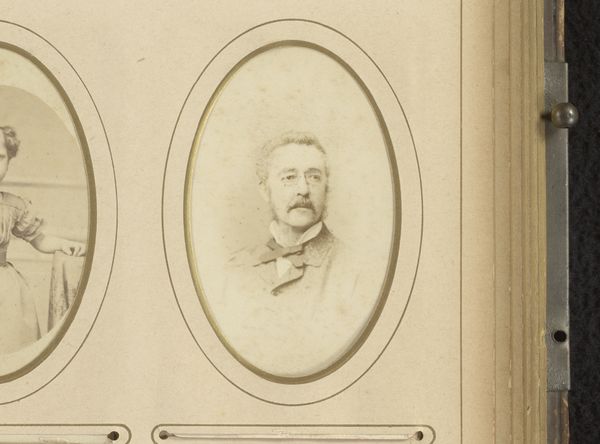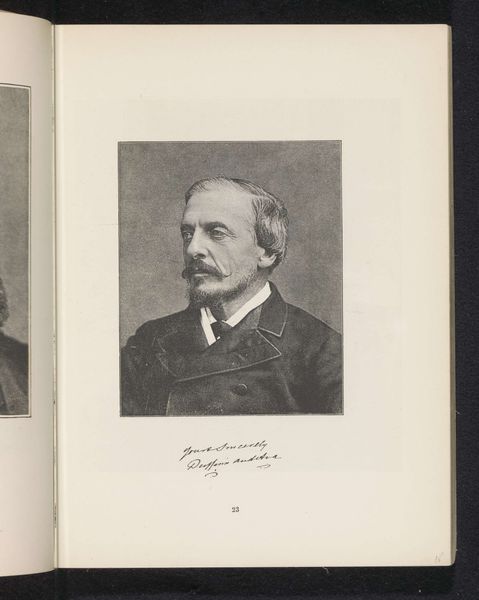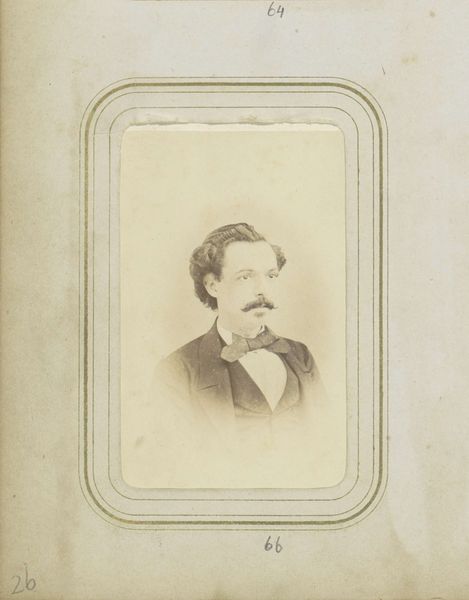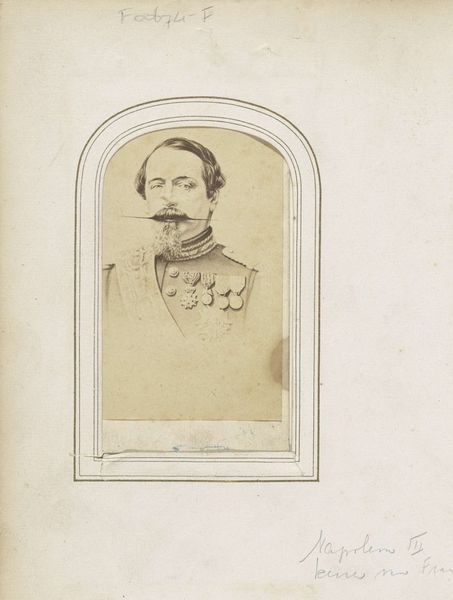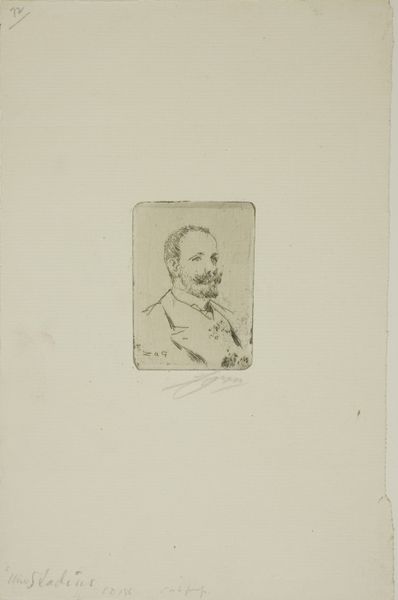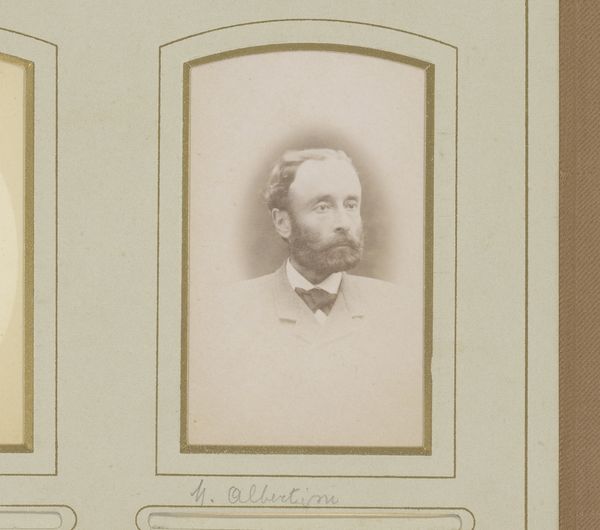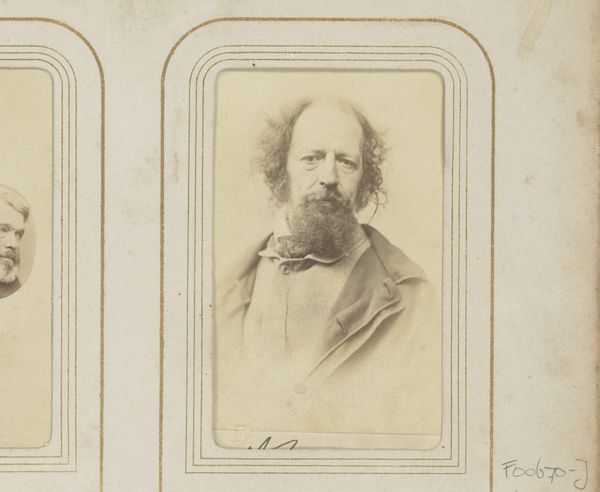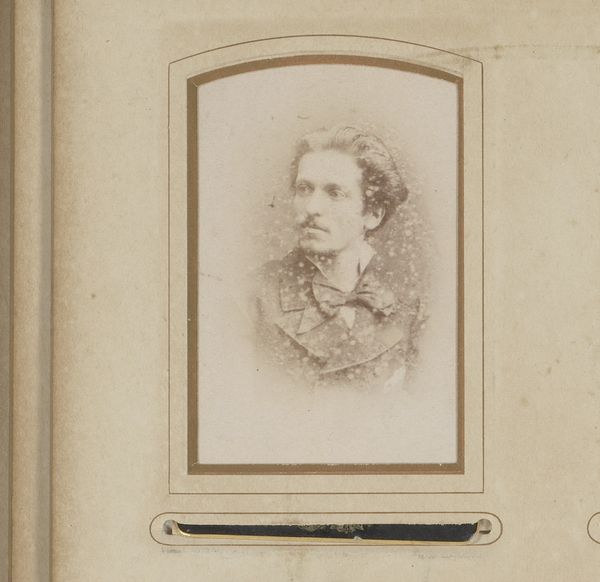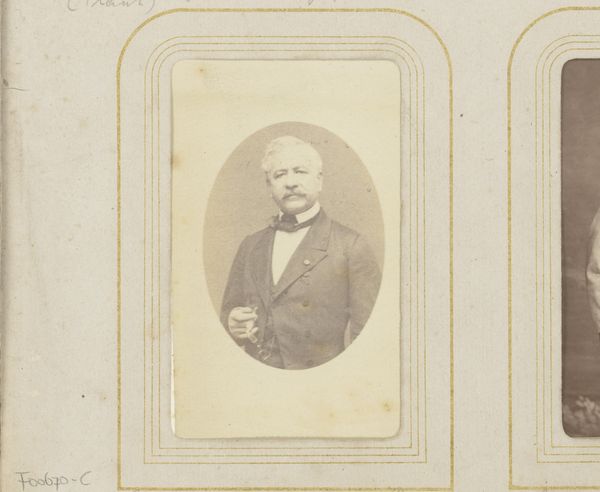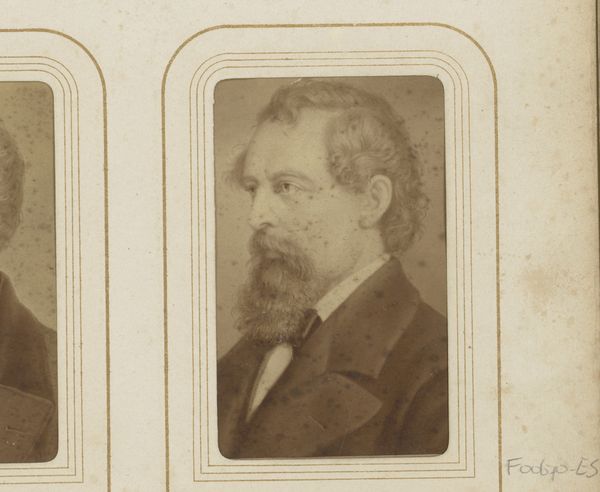
photography
#
portrait
#
photography
#
realism
Dimensions: height 85 mm, width 55 mm, height 101 mm, width 63 mm
Copyright: Rijks Museum: Open Domain
Augustin Aimé Joseph Le Jeune created this small portrait of Napoleon III, Emperor of France. Portraits like these offered a controlled image of leadership. Napoleon III, ruling during a time of significant social and industrial change, sought to project an image of power and stability. Note how photography, though relatively new, became a tool for constructing and disseminating a particular image of masculinity and authority. Consider the complexities of representation here. As Emperor, Napoleon III was tasked with embodying the strength and grandeur of France. Yet, this image also reflects the artist's interpretation, filtered through his own experiences. Le Jeune's choices in composition, lighting, and pose contribute to the narrative of power that surrounds the Emperor. How does this image invite you to reconsider traditional notions of leadership, and how do you think Napoleon III’s representation invites a dialogue about power, identity, and representation in a changing world?
Comments
No comments
Be the first to comment and join the conversation on the ultimate creative platform.
